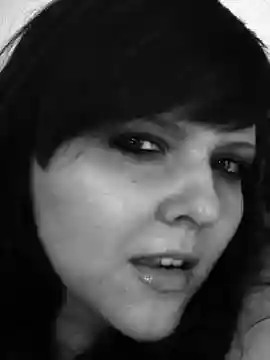In March I wrote a piece about Orson Scott Card writing Superman, and asked if readers let a writer’s offensive personal beliefs and politics (or the perceptions of same) get in the way of enjoying the work they create, even if the work they create seems free of those beliefs.
But what about when a story itself conflicts with your personal beliefs?
In some ways it’s a problem specific to comics. When you purchase a book, short of returning it a few chapters in if you don’t like it (do people do this?), you’ve already invested your money in the product. So if you don’t like what’s inside and find the content offensive it’s mostly too late.
But with comics, every month is an opportunity to either keep investing in a story, or cut and run.
This happened to me not long ago with the “new” Wonder Woman comic by Brian Azzarello and Cliff Chiang, two creators I like very much working with a character I adore. It was a book I was excited about in every way, and the execution was very strong overall. But in issue #7 the storyline became incredibly offensive to me and I found myself dropping the book. Wonder Woman is currently on issue #19 and I haven’t supported it since issue #7, not because of the writing quality, not because I don’t love Wonder Woman any more, and despite the fact that one of the best artists in comics is drawing her, but simply because I couldn’t come along on the destruction of the DC Universe Amazons, one of the few remaining symbols of feminism in DC Comics.
I’ve dropped monthly comics before of course, but it’s generally about more mundane things than the ethical direction of a storyline. Sometimes the artist or writer changes and it’s no longer something you like. Sometimes the book just drops off in quality and you have to make tough choices based on your pocket book. But Wonder Woman was one of the first times for me as a comics fan where I felt I had to “vote with my dollars” and take a stand against what was being portrayed in a book, despite its overall quality. Still buying it seemed like a tacit endorsement of the choices they were making. So despite it being one of my favorite characters and a genuinely stellar writing and art team, I stopped reading after issue #7.
My experience with Wonder Woman, and the recent Orson Scott Card controversy got me thinking about what constitutes a dealbreaker for readers. A lot of people in the previous column expressed an ability to easily separate creator from content, but in something like comics where you’re asked to invest repeatedly, and to continue showing support financial and other wise — what kind of things can you not separate? What is a bridge too far, as it were?
There’s certainly nothing wrong with reading material that you fundamentally disagree with, and it can even be good for you — how else would we learn and grow? What a boring, sad, and dangerous world it would be if we only read things we already knew, understood, believed in, etc. But when something you strongly believe in like gay rights, religious freedoms, equality (in my case with Wonder Woman #7 it was feminism) etc., is being attacked and or disintegrated before your eyes in a fictional work seemingly for no purpose, where do you draw the line in supporting that work?
We’re not talking about something like, say, 1984, where the messages inside are horrible truths and warnings that are uncomfortable to read but invaluable, we’re talking about something important to you that is thrown away, for no reason other than to be controversial or to drum up sales.
Where do you draw the line in supporting quality work when you don’t actually agree with the messages within said work?

About the author
Kelly Thompson is the author of two crowdfunded self-published novels. The Girl Who Would be King (2012), was funded at over $26,000, was an Amazon Best Seller, and has been optioned by fancy Hollywood types. Her second novel, Storykiller (2014), was funded at nearly $58,000 and remains in the Top 10 most funded Kickstarter novels of all time. She also wrote and co-created the graphic novel Heart In A Box (2015) for Dark Horse Comics.
Kelly lives in Portland Oregon and writes the comics A-Force, Hawkeye, Jem & The Holograms, Misfits, and Power Rangers: Pink. She's also the writer and co-creator of Mega Princess, a creator-owned middle grade comic book series. Prior to writing comics Kelly created the column She Has No Head! for Comics Should Be Good.
She's currently managed by Susan Solomon-Shapiro of Circle of Confusion.








